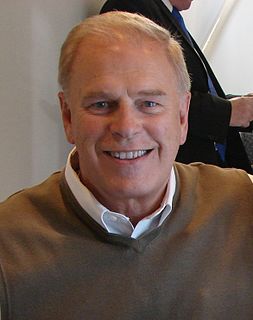A Quote by Dorothy L. Sayers
But it is the mark of all movements, however well-intentioned, that their pioneers tend, by much lashing of themselves into excitement, to lose sight of the obvious.
Quote Topics
Related Quotes
With so much reading ahead of you, the temptation might be to speed up. But in fact it’s essential to slow down and read every word. Because one important thing that can be learned by reading slowly is the seemingly obvious but oddly underappreciated fact that language is the medium we use in much the same way a composer uses notes, the way a painter uses paint. I realize it may seem obvious, but it’s surprising how easily we lose sight of the fact that words are the raw material out of which literature is crafted.
Christians are usually sincere and well-intentioned people until you get to any real issues of ego, control power, money, pleasure, and security. Then they tend to be pretty much like everybody else. We often given a bogus version of the Gospel, some fast-food religion, without any deep transformation of the self; and the result has been the spiritual disaster of "Christian" countries that tend to be as consumer-oriented, proud, warlike, racist, class conscious, and addictive as everybody else-and often more so, I'm afraid.
Go deeper than love, for the soul has greater depths, love is like the grass, but the heart is deep wild rock molten, yet dense and permanent. Go down to your deep old heart, and lose sight of yourself. And lose sight of me, the me whom you turbulently loved. Let us lose sight of ourselves, and break the mirrors. For the fierce curve of our lives is moving again to the depths out of sight, in the deep living heart.
I see this with experienced writers, too: They worry so much about the plot that they lose sight of the characters. They lose sight of why they are telling the story. They don't let the characters actually speak. Characters will start to dictate the story in sometimes surprising, emotional, and funny ways. If the writers are not open to those surprises, they're going to strangle the life, spark, or spirit out of their work.
There's no getting around the fact that some cities face long odds, and governments and societies are going to be confronted with some hard decisions. Most importantly, cities have to recognize that in times of crisis they have to help themselves. Governments, no matter how well intentioned, can only do so much, especially when they themselves are so strapped for cash, as the U.S. is now. Government money will probably flow to cities and regions with good prospects for the future, so as not to risk money even further by pouring it into stalled economic models.
Professors typically spend their time in meetings about planning, policy, proposals, fund-raising, consulting, interviewing, traveling, and so forth, but spend relatively little time at their drawing boards. As a result, they lose touch with the substance of their rapidly developing subject. They lose the ability to design; they lose sight of what is essential; and they resign themselves to teach academically challenging puzzles.
If people are highly successful in their professions they lose their sense. Sight goes. They have no time to look at pictures. Sound goes. They have no time to listen to music. Speech goes. They have no time for conversation. Humanity goes. Money making becomes so important that they must work by night as well as by day. Health goes. And so competitive do they become that they will not share their work with others though they have more themselves. What then remains of a human being who has lost sight, sound, and sense of proportion? Only a cripple in a cave.


































